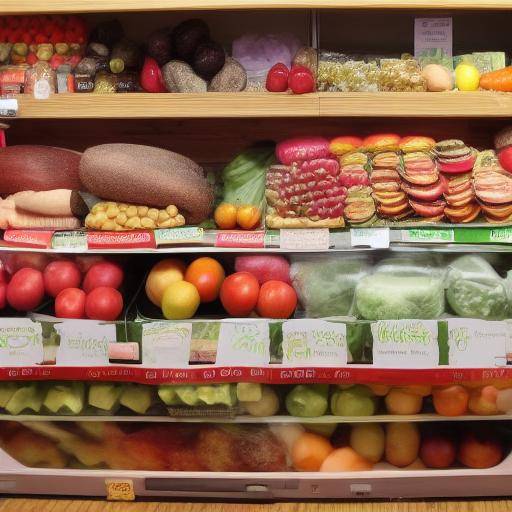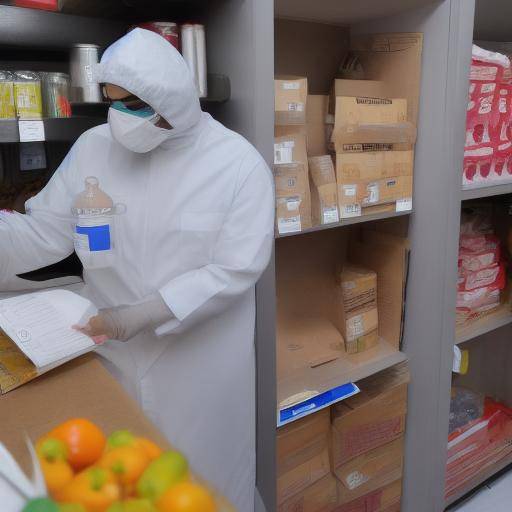
Introduction
What impact does it have on our well-being, disease prevention and saving the reduction of meat consumption in our diet? This question has become very relevant in recent years, as awareness of the impact of our food choices on our health and on the planet increases. In this article, we will explore in depth the impact of reducing meat consumption, addressing its implications for well-being, disease prevention and savings. We will discuss historical data, up-to-date analysis, practical advice and expert perspectives to provide a holistic view on this crucial issue.
History and Background
The act of eating meat has been a central part of the human diet throughout history. Since the first human beings incorporated meat as food, it has been an important source of nutrients and energy. However, with the advancement of industrial meat production and increased consumption, concerns have arisen about its impact on health and the environment.
Meat consumption throughout history has undergone significant changes. From animal hunting in the prehistoric era to domestication and livestock breeding in more recent times, the role of meat in the human diet has evolved considerably. The Industrial Revolution marked a turning point, as mass meat production became more common, drastically transforming meat availability and consumption globally.
As awareness of sustainability and animal welfare has increased, food habits have also begun to change. Today, there is growing interest in reducing meat consumption and seeking healthier and more ecological alternatives.
Analysis in Deep
The impact of reducing meat consumption extends to multiple areas, including personal well-being, disease prevention and economic savings. Let us carefully study these aspects:
Welfare
Personal well-being is influenced by food. Reduce meat consumption can lead to increased intake of fruits, vegetables, whole grains and legumes, which in turn can contribute to a more balanced and varied diet. In addition, it has been observed that plant-based diets are associated with a lower risk of chronic diseases, which has a positive impact on overall well-being.
Disease Prevention
Numerous studies have shown that excess meat consumption, especially processed meats, is linked to increased risk of diseases such as heart disease, type 2 diabetes, and certain types of cancer. By reducing meat intake, risk factors associated with these diseases can be reduced, contributing to the prevention and control of these diseases.
Economic Saving
From an economic perspective, reducing meat consumption can have a significant impact on the family budget. Vegetable proteins are usually more economical than meat, which could result in long-term savings in food spending.
Comprehensive review
The reduction of meat consumption not only involves health and personal well-being benefits, but also has social and environmental implications. The effects of this food transition are reflected in various aspects of everyday life, which makes your analysis essential.
Applications and Best Practices
Various studies show that alternatives to meat, such as plant proteins and meat substitutes, can provide balanced nutrition, while reducing the environmental impact associated with meat production.
Outlook of Experts
Nutrition, health and sustainability experts have supported the idea of reducing meat consumption as a beneficial measure for individual andglobal health. Their research has shed light on the environmental benefits of reducing meat consumption, highlighting the reduction of greenhouse gas emissions and the preservation of natural resources.
Comparative analysis
By comparing the impact on well-being, disease prevention and meat-related savings, significant similarities and differences that shed light on the subject can be identified.
Similarities
Both personal well-being and disease prevention are directly affected by reduced meat consumption. Both aspects benefit from a more balanced and plant-based diet, which can have long-term positive health effects. Also, the adoption of a reduced meat diet can have a positive impact on economic savings, as meat alternatives are often more financially accessible.
Variances
While there are similarities in the benefits associated with reducing meat consumption, it is also important to recognize differences in the approaches and strategies needed to address each aspect. While personal well-being focuses on the nutritional quality of the diet, disease prevention aims to reduce the risks associated with excessive meat consumption. On the other hand, economic savings are directly linked to the management of the family budget and the costs associated with the purchase of food.
Practical Tips and Recommendations
In considering reducing meat consumption, it is important to take into account certain practical tips that facilitate the transition to a more balanced diet:
- Increase the consumption of vegetable foods such as fruits, vegetables, legumes and nuts.
- Explore new recipes and alternatives to meat that are tasty and satisfactory.
- Check a health care professional or nutritionist to ensure a balanced and healthy diet.
- Perform planned and conscious purchases, prioritizing fresh and local foods whenever possible.
The implementation of these recommendations can be fundamental to achieving a successful transition to a reduced meat diet while ensuring well-being, disease prevention and economic savings.
Conclusions and FAQ
Conclusions
In conclusion, the impact of reducing meat consumption is manifested in many aspects of everyday life. From its influence on personal well-being to its involvement in disease prevention and economic savings, reducing meat consumption represents an opportunity to improve individual health, promote sustainability and optimize financial resources.
Frequently asked questions (FAQs)
Is it safe to drastically reduce meat consumption?
Yes, as long as meat is replaced by alternative sources of essential proteins and nutrients, such as legumes, nuts, tofu and other alternatives of plant origin.
Can reduced meat consumption result in nutritional deficiencies?
With proper planning and a varied diet, it is possible to maintain balanced nutrition and supplement the nutrients previously obtained from the meat.
What is the environmental impact of reducing meat consumption?
The reduction in meat consumption is linked to reduced greenhouse gas emissions, water conservation and the protection of vulnerable ecosystems.
Can you save money by reducing meat consumption?
Yes, plant-based proteins are usually more economical compared to meat, which can result in significant long-term savings.
What alternatives to meat can be included in the diet?
Legumes, tofu, tempeh, seitan, quinoa, nuts and seeds are excellent alternatives rich in proteins and nutrients.
Is it possible to follow a plant-based diet in a balanced and satisfactory way?
Yes, a plant-based diet can be extremely nutritious, varied and satisfactory, as long as it is properly planned and attention is paid to the intake of essential nutrients.
Conclusion
In short, reducing meat consumption is a trend that can have positive impacts on personal well-being, disease prevention and economic savings. By adopting a reduced meat diet, it is possible to promote individual health, contribute to the preservation of the environment and optimize financial resources. This change represents an opportunity to foster healthier and more sustainable eating habits, benefiting both at the personal and global levels.
As awareness of the impact of our food choices increases, the adoption of more conscious and balanced food practices can offer significant benefits to society as a whole. The reduction of meat consumption is just an example of how our daily choices can have a positive impact on multiple aspects of our lives.
Ultimately, in making informed decisions about our food, we can contribute not only to our own health and well-being, but also to the well-being of the planet as a whole.
Through this article, a comprehensive view has been provided on the impact of reducing meat consumption on well-being, disease prevention and savings, with the intention of fostering a deeper understanding and a more conscious reflection on our food decisions.
With this information, readers are invited to critically consider their own relationship with meat consumption and to explore options that allow them to balance their health, well-being and impact on the environment through their food choices.






















































